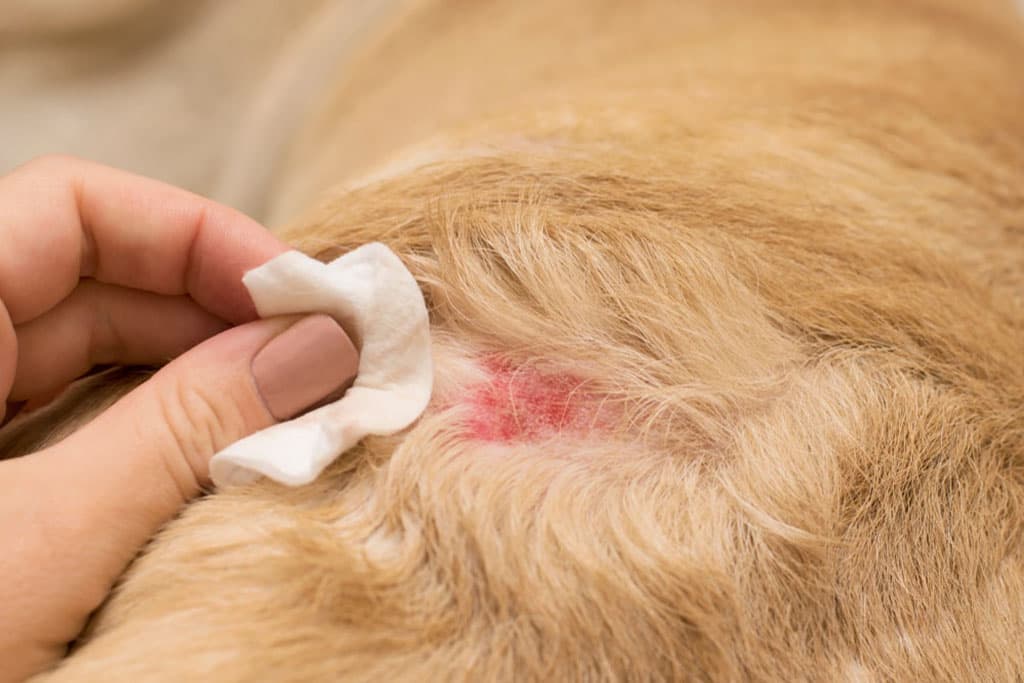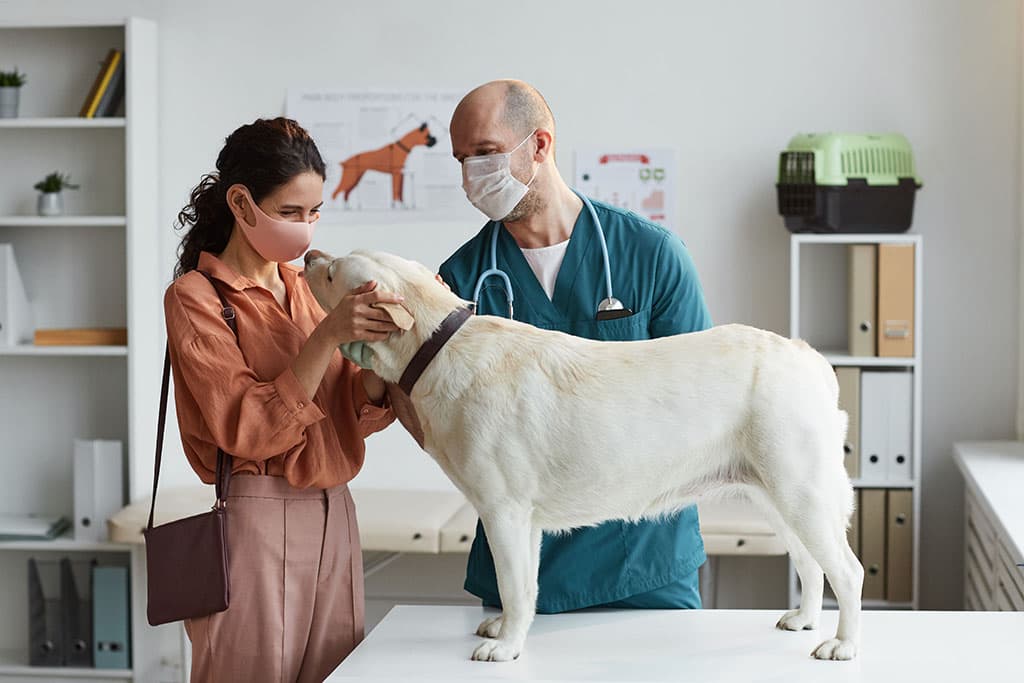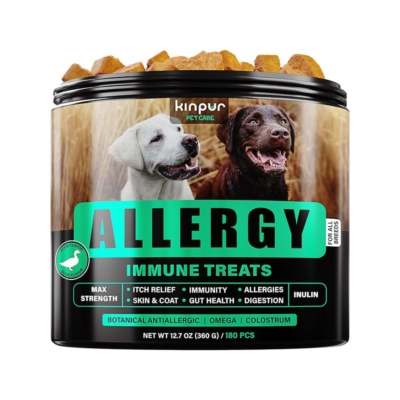
Is your dog itching, scratching its skin, and producing a wheezing sound while breathing? If yes, then the chances are high that your dog has come in contact with specific allergens. Allergies can be your dog’s greatest challenge, they may not cause death immediately, but they make the dog uncomfortable and sick and, in worst instances, fatal. Dog allergies refer to a state of overactivity and reaction of your dog’s resistant structure to elements referred to as allergens. These allergens triggering your dog to respond could be ecological, or from the food you feed it.
If you are at crossroads in helping your dog with allergies, first, you have to understand various kinds of dog allergies and their indications:
Skin allergies:

This is the greatest category of dog allergy that a dog will react to. Skin response is mainly instigated by fleas, diet, and ecological allergens.
Before treating your puppy, symptoms of skin allergies in dogs are:
- Irritation and rubbing of the skin.
- Inflammation of the face, ears, and lips, sometimes with a discharge.
- Itchy ears and paws
- A red and swollen skin.

You can indulge a dog with skin allergies to avoid tributary contagions. Your dog’s skin reactions can be treated using antihistamines or allergy reprieve for dogs that work perfectly in controlling signs of allergy on the dog’s coating.
Food Allergies:

Food aversions in your dog do not automatically result in the dog’s resistant system reaction. Some of the significant indications that will help you know your puppy has reacted to its diet are:
- Throwing up and looseness
- Digestive tract complications
- Pale coat
- Swelling and irritation of the dog’s face.
- Anaphylaxis (uncommon).

Treatment: The best food allergy solution approach for your dog’s diet reaction difficulties is collaborating with your veterinary, who will manage these symptoms.
Critical Allergic reactions: Like man, dogs also get anaphylactic shocks when they severely respond to allergens. This type of aversion may be dangerous and kill your puppy when not attended to in time. It mainly arises from animal or insect bites and injection responses.
Symptoms include:
- Hives and facial inflammation
- Inflammation of the gullet, mouths, lids, or earlaps.
- Irritation.

Treatment: If you notice these symptoms, call your veterinarian immediately to administer antihistamine to your pet and monitor other signs.
Diagnosing Allergies in dogs
If your dog has shown signs of allergies, before helping the dog, ensure you analyze it. Even though it seems complicated, it is necessary.

Begin by involving your pet doctor, who shall rule out other conditions that may be the cause of your dog’s allergic responses. Using his knowledge and expertise, the pet doctor will propose allergy testing to determine the cause of the allergen, whether it’s food-related, seasonal, or an acute allergy. Unfortunately, sometimes it requires more than testing for aversions. It could involve removing certain foods from your dog’s diet, also known as food trials. Usually, it’s easier for the veterinarian to diagnose flea allergies because it’s done by identifying fleas on the dog’s body.
How to help a dog with skin reactions.
Skin allergies in dogs are common and almost considered to be expected. You may have noticed your dog itching, or some patches on its skin and missing some hair. Suppose your dog has been diagnosed with skin allergy, your next worry is, how do you help your dog with skin allergies? You don’t have to worry anymore as there are different ways to help your dog with skin allergies.
- Antihistamines have for the longest time proven to be successful in treating dogs with skin allergies.
- You can also help your dog with skin allergies by getting preventative treatments from fleas and keeping the medicine on the dog regularly, which will make life easier for you and the dog.
- Put your dog on a hypoallergenic diet that can prevent the dog from developing antigens in their systems hence no immunity reaction.
- Get your pet under medication or seek handling for skin allergies if they become severe. Let your vet monitor and prescribe the best medicine for your pet, such as powerful oral steroids. However, be sure to use them only for a short while as they do not cure skin allergies. Instead, they inhibit swellings that lead to allergic responses on the coating.
-
Product on sale
 Allergy Immune Treats 3-Pack (540 COUNT)Original price was: $77.85.$38.92Current price is: $38.92.
Allergy Immune Treats 3-Pack (540 COUNT)Original price was: $77.85.$38.92Current price is: $38.92. -
 Allergy Immune Treats$25.95
Allergy Immune Treats$25.95


